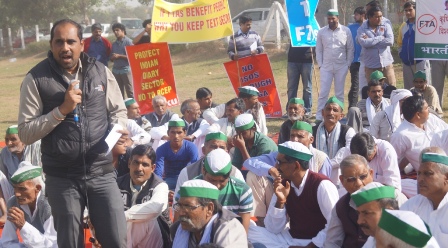
Over a period of five years, India and the Association of South East Asian Nations (ASEAN) negotiated a bilateral free trade agreement — with plenty of difficulty.
Under their initial bilateral framework agreement, signed in Bali on 8 October 2003, the India-ASEAN FTA for goods was supposed to be finalised by 30 June 2005. Negotiations on services would start in 2005 and end in 2007.
After a year’s delay, discussions ground to a halt in June 2006 when India released its ’negative list’ of items to be excluded from tariff reductions — with 900 products, both industrial and agricultural, figuring on the list. (This was down from India’s initial negative list of 1,410 items.) India’s agriculture ministry, in particular, was arguing hard to exclude commodities like rubber, pepper, tea, coffee and palm oil from the deal. Rules of origin have been the other thorny issue.
Two months later, in August 2006, Delhi issued a revised list, pruned down to 560 items. However, tremendous fears about the impacts of the India-ASEAN FTA on farmers continued to rattle the discussion.
By early 2007, in the midst of the new biofuels boom, palm oil became a central blockage point as Indonesia and Malaysia, both top palm oil exporters, struggled to get India to lower its tariffs.
On 28 August 2008, a deal was finally concluded. The agreement was signed in 2009 and took effect (trade in goods) with 5 of the countries and India in January 2010, (Singapore, Malaysia, Brunei, Myanmar and Thailand). India is pushing – without much apparent process – for a services liberalization deal with the ASEAN countries.
last update: May 2012
photo: La Via Campesina





